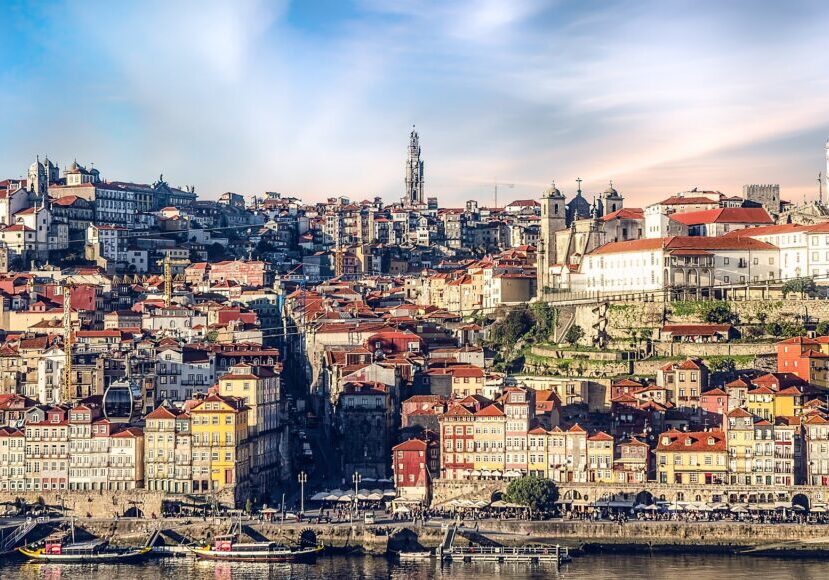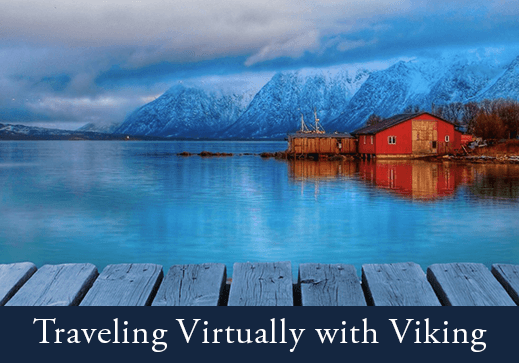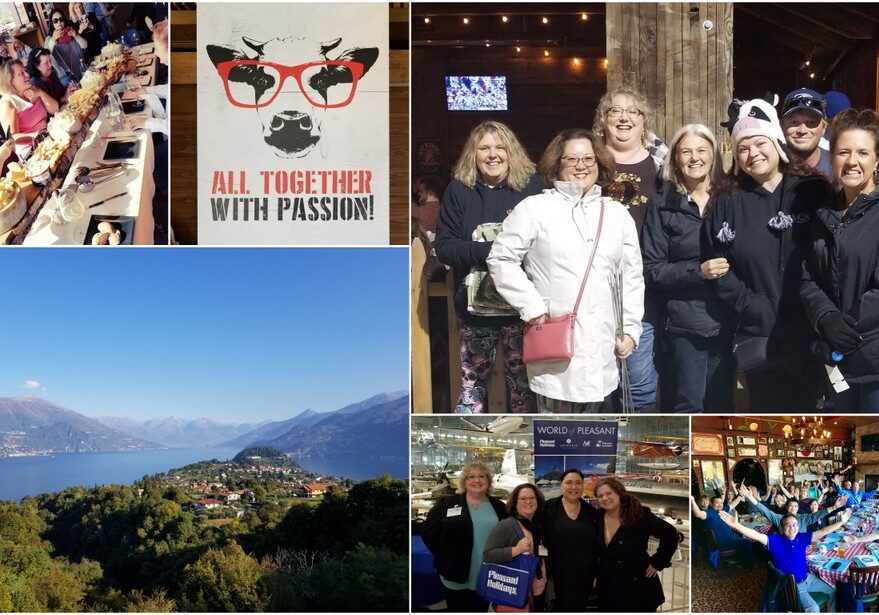Portugal
Portugal shares the Iberian Peninsula with Spain. Its landscape is varied with green mountains in the north, a near-desert landscape in the Alentejo region and excellent beaches in the Algarve on the south coast.
Portugal is a family-friendly destination. Families with young children can always take advantage of the extensive coastlines and many beaches. Families with adult children often opt to visit the wine region.
The Portuguese are warm and hospitable people who consider family very important. A handshake is a common form of greeting. While casual wear is acceptable throughout Portugal, beach clothing should remain on the beach.
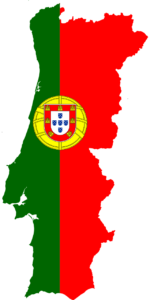
Popular Areas
The capital of Portugal, Lisbon is built on seven hills and is situated on the edge of the Atlantic Ocean, one of the rare Western European cities that face the ocean. The city stretches along the northern bank of the River Tejo as it flows into the Atlantic Ocean. Lisbon's main street, the Avenida da Liberdade, is, a broad boulevard lined with leafy trees, upscale hotels and upmarket shops. The old districts of Mouraria and Alfama retain their charm with their winding alleys and azulejo-covered crumbling walls. To the west, is a hill which rises steeply into Bairro Alto (upper town). Still further west is the rapidly gentrifying former docks of Alcantara.
Nearby along the coast are beaches and beach resorts with good villas and hotels, marinas and excellent golf courses. These can all be found in Cascais and Estoril.
Porto, a World Heritage city, is well known for Port wine but also for its ancient churches and monuments such as the Cathedral and the Church of São Francisco and also modern buildings such as Casa da Musica. Coimbra is the third largest city in Portugal known for the University of Coimbra, one of the oldest in Europe and the oldest academic institution in the Portuguese-speaking world. There are many archaeological structures here which date back to the Roman era. The historical University buildings were classified as a World Heritage site by UNESCO. The town of Sintra has been inhabited by man for a very long time with its numerous archaeological remains. The town is surrounded by pleasant woods and an extensive range of green hills offering excellent views of the coastline.
Evora is a delightful Portuguese city situated in the arid Alentejo region of central Portugal. It was an important trading and religious centre and this is reflected in the many attractions discovered within the city walls. The Diana Temple is regarded as the best preserved Roman structure on the Iberian Peninsula. Alcobaca is a city in the Estremadura Province with its Monastery of Alcobaca, one of the most magnificent gothic monuments in the country. Nearby is the Monastery of Batalha, another gothic building. Serra da Estrela, the highest peak in mainland Portugal, has endless landscapes and glacial lagoons. It has a number of marked hiking trails which cover the whole of the National Park.
The Algarve is the stunning coastline of southern Portugal. Along the 160 kilometre/100 mile stretch of coastline are beautiful expanses of sand, rugged cliffs and hidden coves. The region is blessed with almost perfect weather. Each of the Algarve resort towns offers its own unique attractions but all provide great value and excellent facilities. Some of the major resorts are Albufeira, Faro, Portimao and Armacao de Pera. Golfing here is a very popular pastime.
In the middle of the Atlantic Ocean off the north coast of Africa is the island of Madeira, a haven of natural beauty. The exotic colours of the flowers together with the blue sea and the emerald green vegetation make it indeed an attractive destination. Springtime temperatures exist all year round and the island offers many open-air activities which include diving, surfing, swimming with Dolphins, whale watching or simply strolling. The city of Funchal is a modern, cosmopolitan city, well known for its many top-class restaurants and stunning hotels.
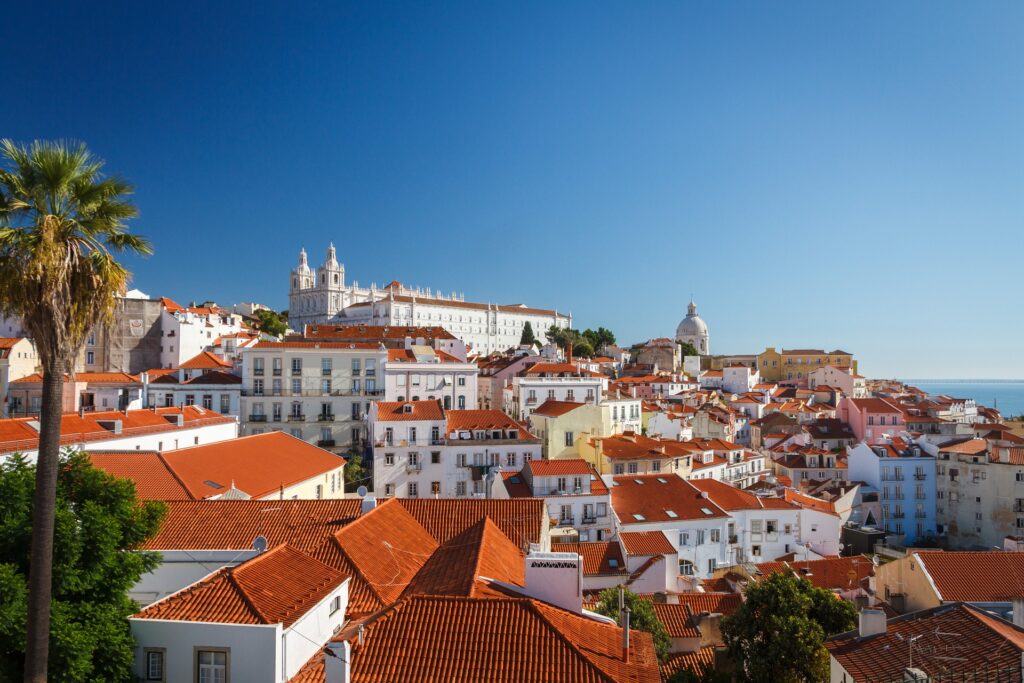
Weather
Portugal enjoys a temperate maritime climate characterized by hot summers and wet winters. The weather in Portugal is very much influenced by Atlantic, Continental and Mediterranean influences. Weather in the north tends to be cooler as a result of the mountains, while further south along the coast incredibly hot summers are common.
In Portugal, spring runs from February to April. Summer is from June to September and temperatures can range between 35-40˚C (95-104˚F). Autumn is from October to November and winter is from November to March. It is during the winter months that most of Portugal’s rain falls.
Best TIme To Visit
Different cities and regions in Portugal are popular at various times of the year.
For those who are looking to visit the main cities such as Lisbon and Porto, May to August is ideal. These cities can be very busy with tourists during the later summer months and the weather can be hotter as well. Crowds are less in the Spring and Fall months.
If you are interested in visiting Portugal's wine country, April to June or September to October is recommended. The weather is pleasant allowing for picturesque sceneries and enjoyable temperatures to visit wineries.
During the North American winter months, people often will visit the Algarve region in the South of Portugal. The weather during this time in this area is pleasant and much warmer than the North American winter season making it the perfect escape for snowbirds. You can enjoy taking advantage of the long stay programs that are offered in the Algarve.
Transportation
Travel by train, buses, taxis, trams, and planes is widely available throughout Portugal. For some clients who want to travel to the areas of Portugal where the main transportation does not reach, they can easily rent a car and do a self-drive. Driving is done on the right side in Portugal and North American tourists who wish to drive must possess an international driver's license. Lisbon, Porta, Algarve and Coimbra are the only cities in Portugal that offer Uber transportation services. When visiting the cities of Porto, Lisbon, Sintra or Coimbra, it is highly recommended to take a tram ride as a quintessential experience of Portugal.
LANGUAGE
Portuguese is the main and national language spoken in Portugal. However, many locals have also adapted to speaking English, Spanish and French.
The official language of Portugal is Portuguese which is today one of the world's major languages, It is the language with the largest number of speakers in South America, spoken by almost all of Brazil's population. It is also the official language in Angola, Mozambique, and Macau.
Currency
Euro (EUR) is the main currency used in Portugal. Visa and Mastercard credit cards are also accepted however it is recommended to call ahead and advise the credit card company of travel plans to avoid hassle while on vacation.
Visa
Canadian and American citizens do not require a visa for stays up to 90 days.

